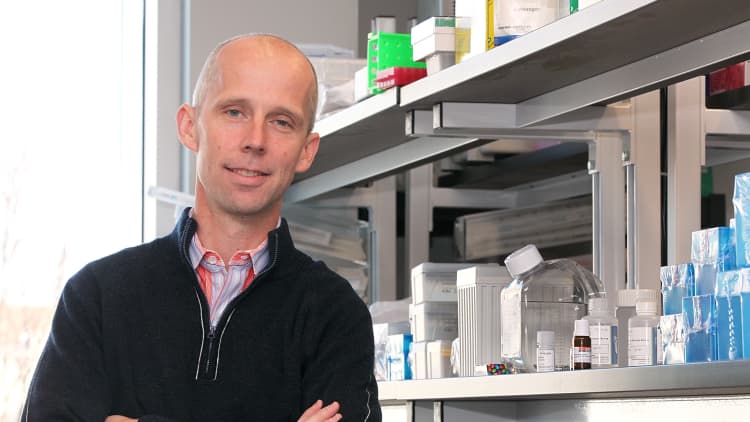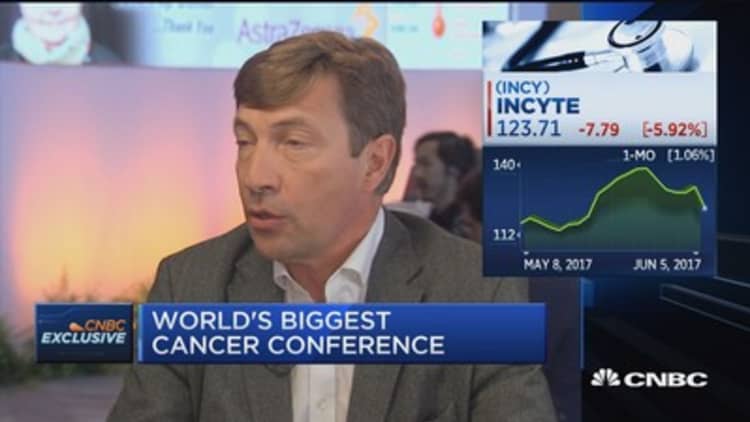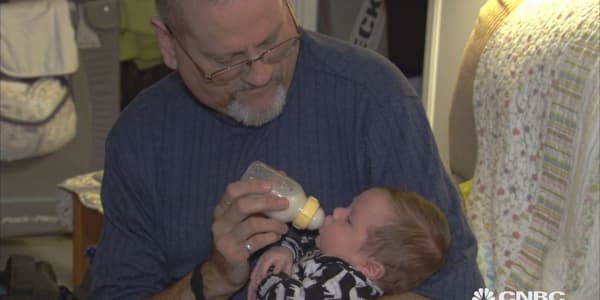A group of researchers say they have come up with a new roadmap for making personalized drugs available to patients in the near future.
The team said the technology is already available to make drugs tailored to the chemistry of individual patients. These so-called precision, or personalized, drugs are based on data such as genetic code. It is hoped these drugs will work better with people's unique body chemistry, providing more effective treatment, and fewer side effects, than mass-produced medicines.
While more work is being done in the field to develop such therapies, there also are obstacles such as regulatory and economic hurdles that must be overcome.
"It is becoming evident that the current pharmaceutical system is too complicated, too expensive and too inflexible to support medicine tailored to individual patients," said a commentary from researchers at Utrecht University in the Netherlands. Utrecht University pharmaceutical researcher Huub Schellekens was the paper lead author on the paper, published Monday in the journal Nature Biotechnology.

Schellekens his colleagues have begun a trial, financed by Dutch insurance companies, to make precision medicines for a group of patients. He did not disclose the specific details of the trial in an interview with CNBC.
Under the "magistral model" Schellekens' team proposed, doctors would pull information about a patient's individual biological makeup — say, by analyzing a blood sample — take that information to colleagues within the same clinic or hospital and order a specialized drug for the patient.
Because the medicines would not be marketed to the general public, they would not need to obtain the marketing authorizations normally needed in many countries, including European countries and the United States.
Instead, the process would be regulated, both in Europe and the U.S., as something sometimes called "compounding." The researchers say it was once common for pharmacies in the U.S. and Europe to compound medicines in-house.
The drugmaker and the health-care provider would be collapsed into one entity, which could save a great deal of money.
Drug costs have become a hot topic of debate in the U.S. and abroad, and drugmakers have faced public scrutiny over pricing.
The most expensive drug in the Netherlands, called Glybera, is a treatment for a rare condition that causes pancreatitis. It costs $1.3 million for a single patient's full course of treatment, Schellekens told CNBC in an interview. (Glybera's maker has said it intends to not seek a renewal of the drug's manufacturing license.)
In the United States, the Schellekens and his colleagues found costs for about 50 "targeted" drugs run $70,000 to $130,000 for a treatment cycle.
But perhaps more importantly, it would save a lot of time, Schellekens said. A single drug could go from design to deployment in few weeks, rather than the currently common period of several years.
There may of course be some safety concerns around developing drugs in this manner.
History has proven there can be dangers with similar forms of compounding. In 2012, fungal contamination at the New England Compounding Center in Massachusetts led to more than 700 infections and more than 40 deaths.
But the researchers said in their paper that that scandal involved the bulk production of medicines, and does not represent the sort of model they are describing, where doctors would develop drugs directly for individual patients in a clinical setting. The team also said there are examples of mass-marketed, FDA-approved drugs posing safety risks, such as in the case of the drug Vioxx.
They also said that the direct relationship between a doctor and a patient, including close supervision, would make it easier to diagnose safety issues as they arise.
"There is no technical reason this cannot work," Schellekens told CNBC. "We know we can make these products. Of course, we need a process to ensure these projects are safe to give patients because we cannot afford to screw up. But the big challenge will be the reaction of big pharma."
Watch: Incyte CEO on future of cancer treatment






